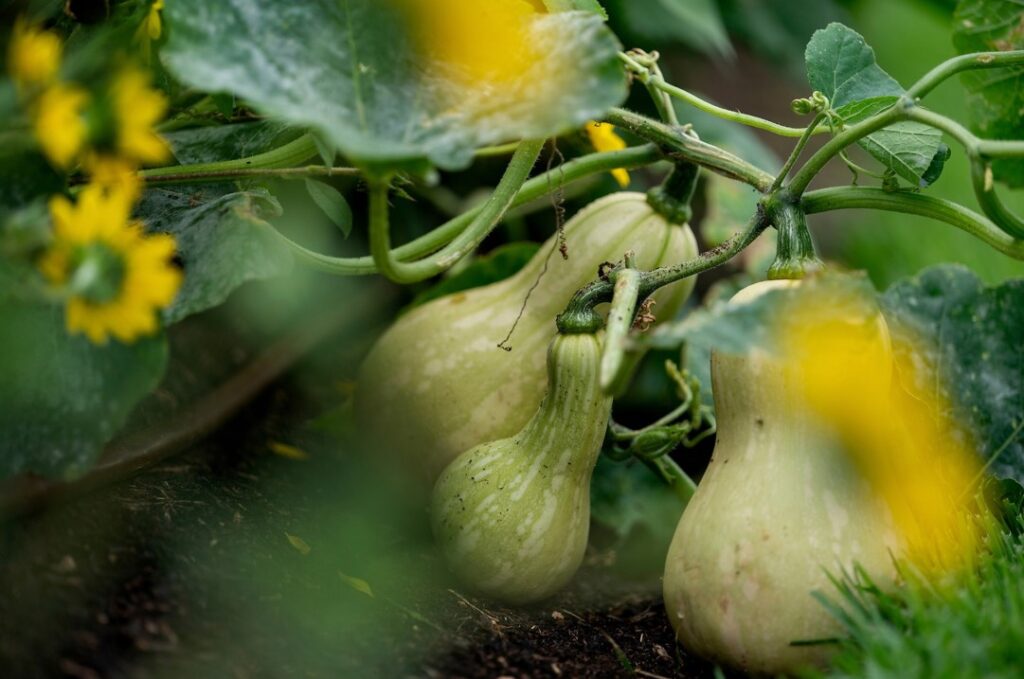Fostering Health, Prosperity and Sustainability
What we do
The IHA aims to improve human health through innovations in agriculture, nutrition and food systems.
Our research bridges disciplines to solve complex challenges surrounding food production and health. We develop guidance, programs, practices and policies to foster well-being for current and future generations.
IHA research creates healthier communities. It builds a more sustainable environment for food production. It helps food producers thrive.

Diet-related chronic diseases on the rise
More than half of American adults battle chronic health conditions because of the types of food they eat. 42% of Americans have two or more major chronic health conditions, such as heart disease, hypertension, obesity, cancer or diabetes. The prevalence of these conditions has increased steadily over the past 20 years.

Cardiovascular disease
48.6% of all adults in the U.S.—127.9 million—have cardiovascular disease. It is the nation’s #1 cause of death.

Hypertension
An estimated 47% of U.S. adults (122.4 million people) have hypertension.

Diabetes
Half of American adults suffer from diabetes or pre-diabetes.
- 14.7% (38.1 million) have diabetes.
- 38% (97.6 million) have prediabetes.

Obesity
More than 71% of U.S. adults are overweight or obese.

High cholesterol
About 48% of U.S. adults aged 65 and older have been diagnosed with cholesterol levels above 200 mg/dL.
“The past three decades have seen unprecedented increases in the incidence of diet-related chronic diseases and their associated impact on health care costs….”
Source: “Bailey, R.L., & Stover, P.J. (2023, August 21). Precision nutrition: The hype is exceeding the science and evidentiary standards needed to to inform public health recommendations for prevention of chronic disease. Annual review of nutrition. https://www.ncbi.nlm.nih.gov/pmc/articles/PMC11015823

Why agriculture is the solution
Food is key to the prevention and management of many chronic diseases. Complex factors—environmental, economic, and social/cultural—influence the menu of foods we eat.
These factors underlie food production and influence food quality. They determine availability of nutritious food in various communities. They drive consumers’ food choices. They have much to do with our nation’s current state of human health.
For example, environmental stewardship is critical to the quality and safety of the food supply. Agricultural methods that strategically manage environmental concerns have a downstream effect on the food we eat. Indirectly, they enable us to address diet-related chronic diseases.
By making agricultural considerations central to our battle against such diseases, the IHA takes a quantum leap forward in reducing their toll.
Responsive agriculture
At the heart of our efforts is the concept of responsive agriculture. This concept envisions an agricultural system and food environment that work synergistically to support health through nutrition.
Responsive agriculture ensures that the network of food producers is economically robust. It promotes practices that are environmentally sustainable—eco-friendly guardrails that secure the food production system for future generations.

What the IHA aims to achieve
- Reduce diet-related chronic diseases.
- Lower health care costs.
- Increase nutrition security.
- Eliminate diet-related health inequities.
- Transform agricultural ecosystems and the ag-food value chain to ensure economic viability and environmental sustainability.
Research initiatives
IHA research spans three disciplines:
Our collaborative research model gives scholars from each discipline a seat at the table. Research not only occurs within each disciplinary hub, but across them as well. By uniting diverse ideas and perspectives, we craft comprehensive solutions to health problems.
-
Change Club Rural Library Comparative Effectiveness Study
Principal Investigator (MPI): Rebecca Seguin-Fowler, Ph.D. This community-based civic engagement NINR R01 study is taking place in rural towns in Oregon in partnership with libraries. Half of the libraries are implementing the Step it Up (SIU) evidence-based walking program and the other half are implementing SIU plus the Change Club to catalyze positive built environment…
-
Change Club Texas & New York
Principal Investigator: Rebecca Seguin-Fowler, Ph.D. This community-based civic engagement NCI R01 study is taking place in communities in New York and Texas. A Change Club is a small group of residents who will meet regularly to change their community’s built environment relative to food or physical activity opportunities. Change Club groups are a part of…
-
Diet exposure assessment project
Measuring factors that connect diet and health, and helping people shift their dietary habits
-
Discovering the antioxidant properties and benefits of grains (sorghum) and other novel uses to enhance human health
A pilot for scaling interdisciplinary research to connect agriculture and health.
-
Greater Texas Community Panel
The Greater Texas Community Panel is a representative group of adults from Dallas, Tarrant, El Paso, and Hidalgo Counties. Through a series of surveys, the panel will provide new insights into residents’ health and well-being, helping to guide efforts to better support community needs. Initial surveys will explore healthy living, responsive agriculture and precision nutrition.…
-
Healthy School Recognized Campus (HSRC) Program
Using a school-wide walking program to build healthy habits.
-
Maternal and child health study
Exploring the connection between diet and health outcomes for expectant and new mothers and their children
-
Pay-What-You-Can Community Cafés
Principal Investigator: Alexandra L. MacMillan Uribe, Ph.D. Community cafes offer a novel approach addressing food insecurity, welcoming everyone regardless of their ability to pay. This descriptive study gathers data from cafe guests and volunteers through an online survey to understand their motivations for engaging with the cafe model, whether for food, community, or other reasons.…
-
Produce Prescription Program for Healthy Blood Pressure (PRx BP)
Principal Investigator: Alexandra L. MacMillan Uribe, Ph.D. This pilot randomized controlled trial targets West Dallas, TX residents with hypertension, aiming to improve blood pressure through fresh produce consumption. Participants are randomized into intervention and control groups. The intervention group receives weekly produce bags and educational sessions from June to December 2023. The control group, initially…
-
Responsive Agriculture Forum
Leading experts, researchers and industry representatives will join thought-provoking conversations as we collectively shape the future of the Responsive Agriculture hub at the IHA.
-
Spanish Translation of USDA EFNEP Food and Physical Activity Behavior Questionnaire
Principal Investigator: Alexandra L. MacMillan Uribe, Ph.D. This study involves a collection of psychometric testing, including cognitive interviews conducted virtually (via Microsoft Teams or Zoom) or in-person at partner institutions (Texas A&M, UC Merced, Rutgers, Oklahoma State University). The goal is to establish face validity and semantic equivalence for EFNEP-eligible Spanish-speaking adults in Texas, Oklahoma,…
-
Strong Hearts Digital
An app-based education system teaching healthy eating and physical activity.
-
Strong Teens for Healthy Schools Change Club
A middle school-based, 16-week program aiming to instill healthy habits in teens.
-
Texas MyPlate Food Ambassadors Changing Environments and Schools
Empowering high school students to help bring MyPlate education equity to rural schools in Texas.
-
Texas Play Streets
A project which aims to close city streets for a designated period of time to allow for family playtime.
-
The Mind|Full Study
A micro-randomized trial utilizing real-time glucose monitoring and ecological momentary assessments to guide dietary intake behavior in adults at high risk of prediabtes.
USDA-ARS partnership
The Institute partners with the USDA-ARS Responsive Agricultural Food Systems Research Unit. USDA-ARS partners contribute invaluable expertise in big data, state-of-the-art sensors, and computational systems. They strengthen our work in responsive agriculture, precision nutrition, and behavioral research.
Policy guidance
IHA experts provide scientific insights to legislative leaders. Their guidance spans a range of topics, among them:
- federal food assistance programs
- dietary guidance
- agriculture/food systems
By informing policy development, the IHA improves the health of countless communities.
Research that leads the way
At the IHA, our innovative work by leading scientists is uncovering new innovations, improving healthy and sustainable food systems and empowering our Texas communities to live healthy, fulfilling lives. Explore our current projects.
